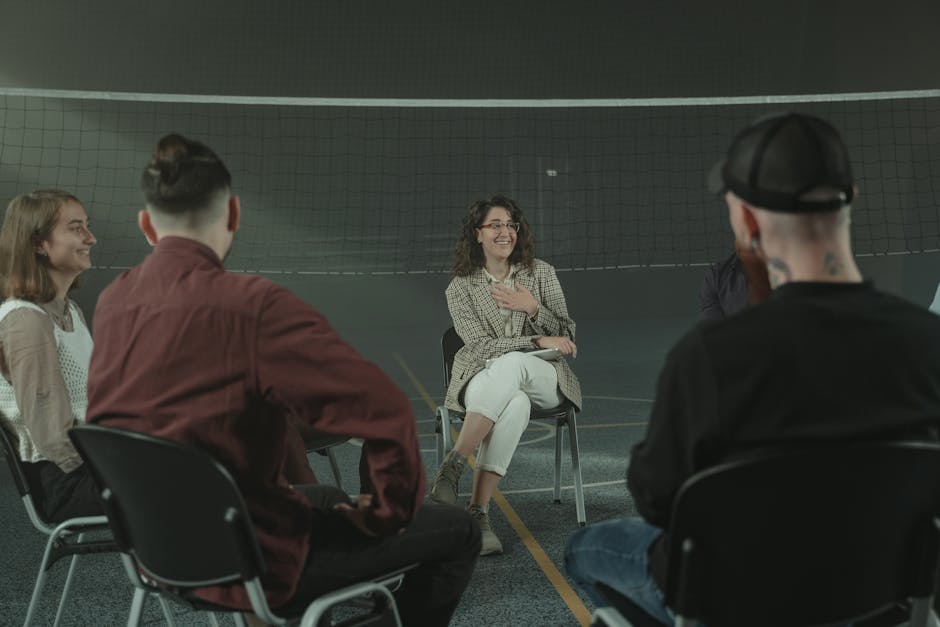- By Gracie Bonds Staples The Atlanta Journal-Constitution
#JamesDonaldson notes:
Welcome to the “next chapter” of my life… being a voice and an advocate for #mentalhealthawarenessandsuicideprevention, especially pertaining to our younger generation of students and student-athletes.
Getting men to speak up and reach out for help and assistance is one of my passions. Us men need to not suffer in silence or drown our sorrows in alcohol, hang out at bars and strip joints, or get involved with drug use.
Having gone through a recent bout of #depression and #suicidalthoughts myself, I realize now, that I can make a huge difference in the lives of so many by sharing my story, and by sharing various resources I come across as I work in this space. #http://bit.ly/JamesMentalHealthArticle

In a sunlit room, an #AfricanAmerican mother talks about the moment she learned her then-9-year-old son tried to kill himself.
That isn’t anything you ever want to hear, but at the same time, Charlena E. Jackson realizes how lucky, no, how blessed her family is that Elijah’s attempt wasn’t successful.
A lot of other moms can’t say the same.
For the first time in history, #suicides among #blackchildren are skyrocketing, especially here in Georgia. The only thing worse than that is no one seems to know for sure why.
According to “The Changing Characteristics of #African-American Adolescent Suicides,” published recently in the Journal of Community Health, suicide rates among black #boys ages 13-19 rose 60% between 2001 and 2017. For #females, rates increased 182% during that same period.
“There is no definite reason known, and we cannot definitively prove or establish cause-and-effect relationships,” said Jagdish Khubchandani, a health science professor at Ball State University and one of the authors of the study. “In general, educational investment, state child poverty and crime, and #mentalhealth resources need to be looked at in Georgia as they are predictors of #suicide over a large geographic area.”
In 2017, 68,528 #AfricanAmerican males and 94,760 #females made #suicide attempts serious enough that they had to be treated by #healthprofessionals, the study found. #Males were most likely to use firearms (52%) or to hang/suffocate themselves (34%) to commit #suicide. #Females used hanging/suffocation (56%) or firearms (21%) to commit #suicides.
“Earlier, #suicide rates for #AfricanAmerican youth were lower than white youth, but higher than #Hispanics and #Asians,” said Khubchandani. “Now, the rates are highest for #AfricanAmerican youth both regionally and nationally.”
Georgia topped the list of states with the greatest number of #AfricanAmerican adolescent #suicides — 64 — between 2015 and 2017, but it was hardly alone. Nine other states — Texas, Florida, North Carolina, Ohio, Illinois, Michigan, Pennsylvania, New York and Missouri — also made the list.
Khubchandani said the total #suicide numbers in the #UnitedStates have been creeping up since the beginning of the 21st century, rising to more than 45,000 deaths and more than 1 million attempts just last year. Fortunately, in Georgia, that number seems to be dropping. According to the Georgia Bureau of Investigation, the state’s youth suicides dropped from 48 to 41 from 2017 to 2018.
Still, the general trend has been disturbing. “This is an overall indicator of our culture, social and psychological well-being, especially for children,” he said.
So why the focus on #AfricanAmerican youths?
Khubchandani said that while it is well known for many #black children, early life disadvantages play a role in survival rates, it’s not well known if survival rates have changed for teenagers, especially considering violent risk behaviors and associated death rates.
“We independently assessed #suicide rates only for #black kids to see if trends are changing irrespective of what happens to youth of other races,” he said.
Jackson, 39, of Atlanta said the rise in #suicide doesn’t surprise her.
“They are not being heard,” she said. “People don’t take what they go through seriously. They are just a number that doesn’t matter.”
Jackson blames her son’s attempt on years of bullying he suffered while in elementary school.
Almost from the moment he started school, Jackson said students poked fun at Elijah, criticizing the way he talked, how he looked, the clothes he wore. They called him ugly. They called him stupid. They hit and kicked him.
When she complained about a student hitting Elijah, one teacher asked her if she knew the difference between someone bullying and someone who simply made a mistake.
Even complaints to school administrators went unanswered, Jackson said.
Two years ago, at age 9, she said Elijah swallowed a bottle of allergy medicine that belonged to his older brother. He was lucky. He lived to see another day.
“I had no idea he was even thinking about #suicide,” Jackson said.
For weeks after, she said the family went through therapy, and Elijah, now 11, will head to sixth grade soon.
According to Khubchandani, bullying is consistently and strongly associated with #suicides across all youths, especially in #AfricanAmerican youths.
“That’s why #suicide prevention is a complex effort requiring interdisciplinary approaches to #mentalhealth, bullying prevention, and academic enrichment programs,” he said.
But firearms in the home remain the greatest risk for teens and must be the greatest focus for intervention.
Khubchandani said that research has shown that 75% of elementary school students know where their parents keep their handguns and children as young as 2 years of age have the strength to pull the trigger of handguns.
“A second form of protection against #suicides in adolescents is having ready access to mental health care. #AfricanAmerican adolescents are at higher risk than the general population to encounter serious forms of violence.
“Schools are the leading provider of #mentalhealth services for youth. Thus, there needs to be a greater emphasis on urban public schools providing adequate screening, treatment and referral services for adolescents with #mentalhealth disorders.”

———


